About alternative versions of smartphones on new OS, hybrid devices, the path Windows and the independent value of operating systems

Everyone has a phone with a built-in camera,
and I have a camera with a built-in telephone …
KVN, Burnt by the Sun,
5 years before the announcement of the Samsung Galaxy Zoom
Foreword
There are different approaches to device design. Someone prefers that the device does its main job as efficiently as possible, trying to get rid of all unnecessary, non-core functions. Someone, on the contrary, is trying to make a kind of Swiss knife out of the device, adding a bunch of additional modes, new scenarios of use and unusual 'chips'. Should watches support video calls, e-books should allow browsing websites, and cameras should be able to work with Twitter and Instagram?
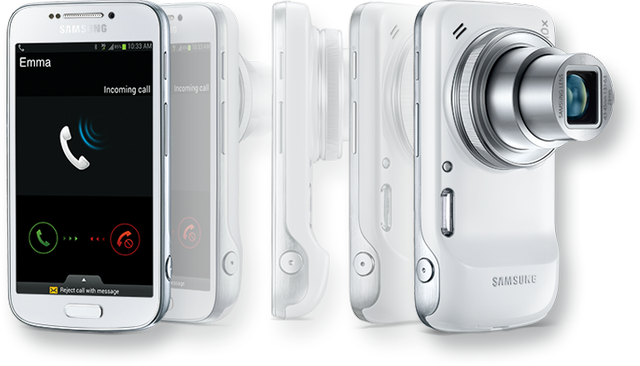
There is no unequivocal answer to this question and cannot be, it all depends on your needs and personal tastes. It is usually believed that mostly 'geeks' are interested in a bunch of different functions, who are even ready to forgive the device for a number of other disadvantages for their sake. And for 'ordinary people' convenience, simplicity and stability are more important, the long list of additional options only confuses them. Although in fact, the division into 'core' and 'non-core' functions is rather arbitrary, and which of them are 'necessary' and which are 'unnecessary', everyone decides for himself. For example, not so long ago some companies tried to convince us that a camera in a mobile phone is a completely unnecessary thing, and in corporate devices it is completely harmful. And it seemed that it sounded quite logical – well, what have a camera and a phone to do with it? And now a smartphone without a camera module simply cannot be imagined, it is as much an integral part of it as a speaker or a screen.
But in recent years, there has been an interesting trend – one and the same device receives several completely independent modes of operation for different scenarios of use. These are '2 in 1' devices, when two completely different software entities live in the same case.
With a slight movement of the hand …
An example is the Continuum mode, which will support some smartphones on Windows 10. The smartphone can be turned into a full-fledged laptop at any time, connected to an external monitor and a mouse with a keyboard. At the same time, the telephone interface automatically adapts to a high-resolution monitor, which will allow you to fully work behind a large screen. The presence of this mode does not affect the usual work with the phone – no additional complications, different switches, a bunch of incomprehensible options and other annoying things.
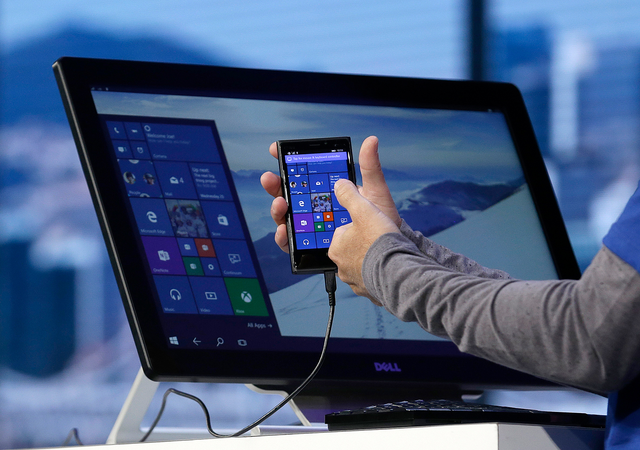
An example is a little simpler – the increasingly popular 'transformer devices'. For example, the same PadFone can be inserted into a special docking station, turning it into a full-fledged tablet. And you can connect a keyboard to a tablet on Windows RT at any time, getting a real laptop with familiar applications and a desktop.
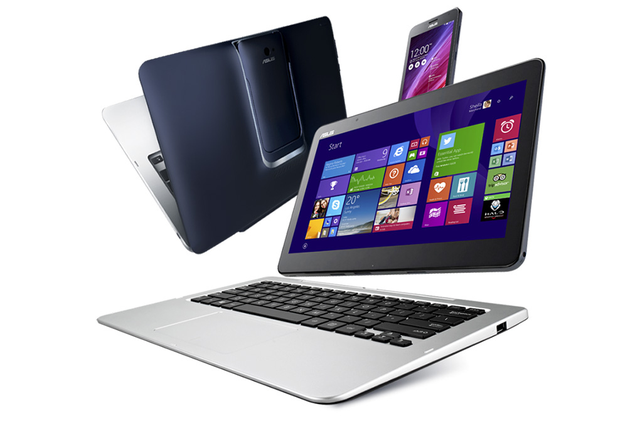
Some devices have two independent operating systems at once, between which you can freely switch. For example, Ideum Duet.
[iframe url = '// www.youtube.com/embed/wKUXKRpuWhM' width = '640 ″ height =' 360 ″ scrolling = 'no' frameborder = '0 ″ marginheight =' 0 ']
So far, such devices are not very common and have many different 'buts', ranging from not the most attractive cost and ending with a number of technical flaws. But progress does not stand still, and soon such additional modes of operation will be able to become a familiar standard that is present in mobile devices by default.
However, at the moment this idea has not gained much popularity among users. Buying a mobile phone, no one considers it as a possible replacement for a laptop, such an opportunity is nothing more than a fun trick. And even relatively few people are interested in 'transforming' one mobile device into another – customers come to the store for a specific device, and not for an incomprehensible hybrid for all occasions. Buying a mobile phone, they want it to be the best mobile phone, and what else it can turn into is the tenth thing.
The power of mobile hardware is growing every year, technically a smartphone can really replace a simple laptop. The difference is primarily in the form factor, not in power. And with the software, everything is very good – just look at the idea of a single Windows with support for familiar applications, which has been involved in Microsoft for several years. The problem is, first of all, in people who are not yet ready for such a formulation of the question.
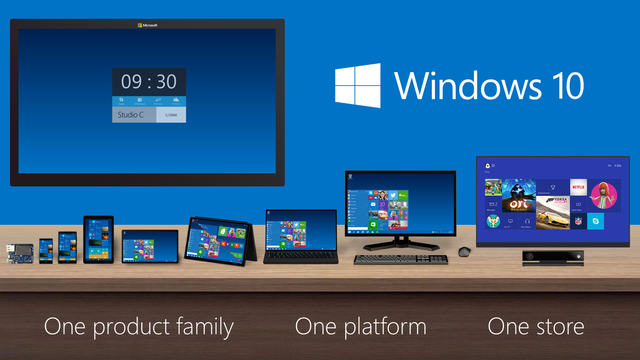
There is something of art in the development of mobile technology – each manufacturer embodies his ideas and his view of the world in the device. Some devices will turn out to be more popular, some less, but if the original idea is implemented well enough, then such a device will definitely find its buyer. Perhaps the main condition is the integrity of the overall picture, which suffers from hybrid devices. Many buyers perceive such devices as strange as a hybrid of a coffee maker and a vacuum cleaner. It seems that the coffee maker did not make coffee worse because of the extra function, but still, few will be ready to buy such a revolutionary device. Perhaps Microsoft will be able to break stereotypes, but, most likely, such 'hybrid' devices will not gain any special popularity at least in the next few years.
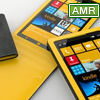 |
Offtopic: empire of tiles, version ten |
Now also banana!
In recent years, another interesting trend has emerged – the release of modified devices, when the software filling of a smartphone already ready and well-known to buyers is changed to an alternative one, while the hardware component remains unchanged. If we again compare the development of technology with art, then this approach is an attempt to re-sound an already finished film or to remake the words of a famous song. Perhaps the result will be witty and interesting, but no one will certainly ever put such a work on the same shelf with the original. This is not so much a question of quality as of psychology – a copy cannot be better than the original, and a person who is only capable of remaking other people's poems (even if it is completely brilliant) will never be considered a poet.
However, sometimes there is simply no other way out. The fact is that most smartphone manufacturers are usually engaged in the development of the hardware, not the software part of the devices. Perhaps some changes will be made to the selected OS and proprietary applications will be added – but very few are eager to write an operating system on their own, the bulk prefers to choose one of the solutions already existing on the market. This situation suits everyone; both device manufacturers and users themselves remain in the black.
But for those who develop new operating systems, things are much worse. Until one of the hardware manufacturers decides to release the device on a new OS, users will not even know about it. And there are very few people willing to take part in such an experiment, and we are usually talking about budget devices for developing countries. As a result, the new OS can be convenient, beautiful, perfectly optimized and incomparable in all respects, but certainly not have any prospects. It is difficult to achieve popular love and attract application developers to your side without having a single device running on this operating system. Moreover, a smartphone manufacturer may well ruin the whole business with cheap hardware or modifications made to the program code. Because of what, the new OS will immediately receive the fame of 'slow' and 'buggy' and will never get a second chance.
Even Google is experiencing similar problems, which for many years has been trying to convince manufacturers to abandon proprietary shells and not make any changes to the OS they have created. And the point here is not some abstract principles or black envy – poorly optimized proprietary add-ons often led to interface hangs or unstable operation of the device, which had a negative effect on reputation Android. This is how the special Google Play Edition (GPE) versions of the devices were born.
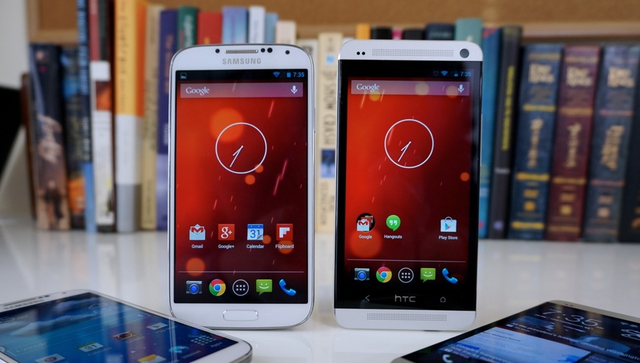
Several other OS developers take a similar path. For example, Ubuntu Touch has not yet acquired its own smartphone, but has been installed on several 'alternative' versions Android of devices.
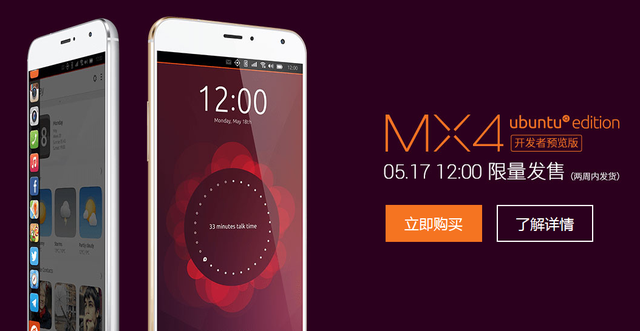
So, two weeks ago a special version Meizu MX4 Ubuntu Edition went on sale in China, running on the OS of the same name. Technically, this is a complete copy of the original Meizu MX4, only the OS changed. You can buy a smartphone on the official website Meizu for $ 290.
Link to news
Is this approach good or not? It is difficult to answer unequivocally. On the one hand, some very successful manufacturers of mobile equipment have gained their fame precisely as manufacturers of firmware and shells. The most striking example is a company Xiaomi, which is still better known outside of China as the developer of the popular firmware MIUI than as a manufacturer of mobile equipment. MIUI is released for many Android smartphones and is actively used by power users around the world. The name of the company is widely known in narrow circles; here it has a well-deserved reputation. When Xiaomi comes out with its products to new markets for itself, it will not have to conquer them from scratch – many journalists, sellers, experts and geeks of these countries have long known it well. But it is these people who form the attitude of ordinary buyers towards the brand at first.
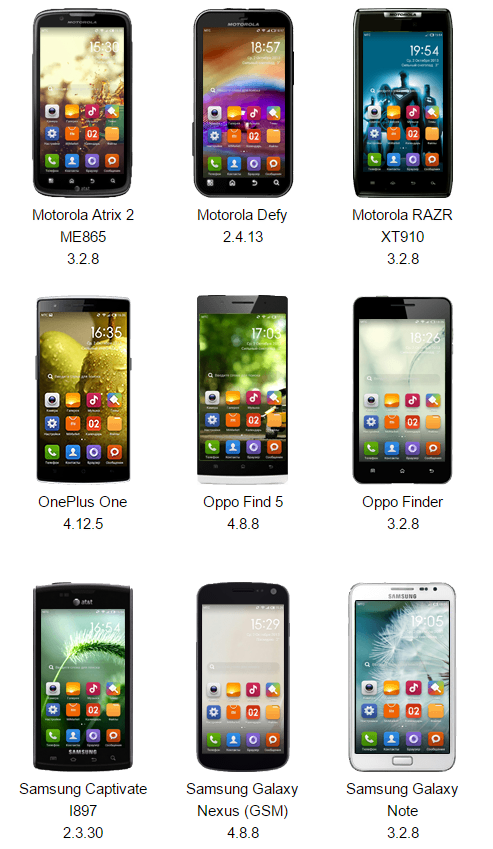
The main difference – in Xiaomi, as far as I know, they never tried to sell someone else's phone with their own shell, focusing primarily on those who can and want to install it themselves and, if possible, make this process as easy as possible for them. After all, most users perceive a smartphone as a single device, not dividing it into software and hardware. iPhone which works for Android is not iPhone. This is a Chinese fake, even if it was assembled from the same components at the same factory. Only a madman will consider it as an alternative to the original device.
If someone wants to buy for themselves Meizu MX4, they will buy for themselves Meizu MX4, and not Meizu MX4 Ubuntu Edition. Of course, Ubuntu has its own fans who will be happy to try a smartphone on a mobile version of the same OS. But such enthusiasts are unlikely to wait for the release of a separate device, but simply install this firmware on an existing one. In the same way, they will prefer to install Ubuntu itself on a computer they already have, and will not specifically wait for a version of a PC with an OS already installed.
Moreover, the number of devices supporting alternative operating systems is gradually growing. For example, according to one of the latest Engadget news, literally at the beginning of the month, the ability to install Firefox OS and Ubuntu Touch appeared on Xperia E3, M2, T2 Ultra and T3 smartphones. Of course, informally and with the risk of losing the guarantee.
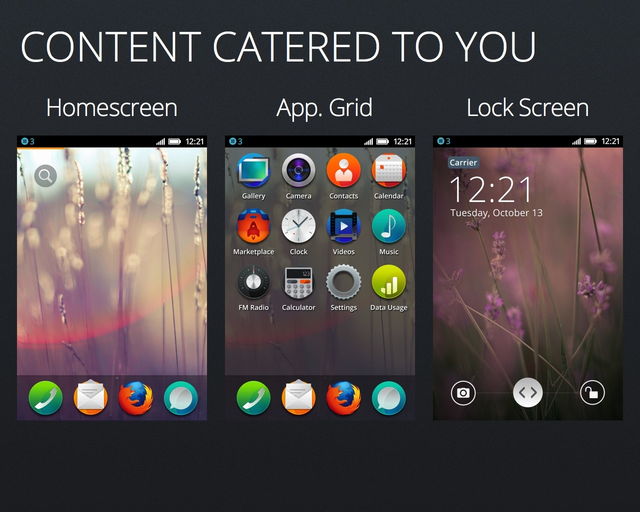
I doubt that many people will decide to install Ubuntu Touch on their smartphone. But I suspect that sales of Meizu MX4 Ubuntu Edition will not be much higher.
Link to news
Such 'alternative' versions of smartphones will not bring any particular popularity to the new OS. It is rather an indicator of the weakness of the system, proof that no manufacturer really needs it as a mobile OS. At the same time, by definition, its own device based on the new OS is perceived completely differently. And if you are lucky, you will even get the label 'killer of something there', which is already good for an unknown newcomer.
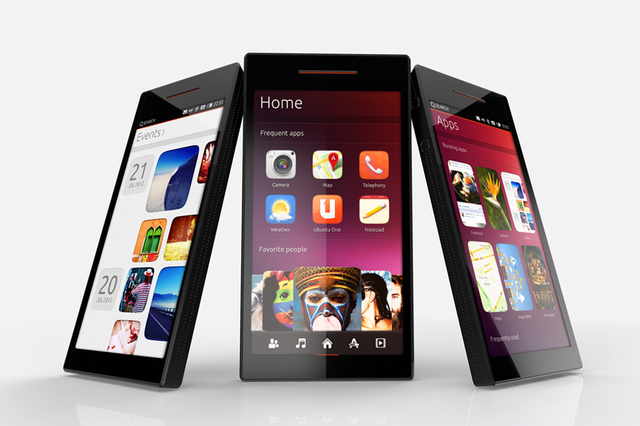
People are usually ready to discuss something real that they can hold in their hands, they are not interested in abstract lines of code. The same Ubuntu Edge caused a lot of conversations on the network and even collected a record amount of donations. The bright design and unusual concept attracted even those people to whom the word Ubuntu does not say anything at all. But the release of Meizu MX4 Ubuntu Edition interested some Canonical fans at best.
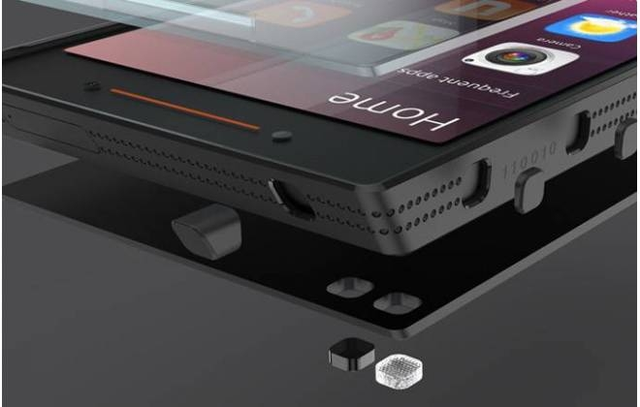
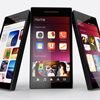 |
Offtopic: facts and rumors about Ubuntu Phone |
Although, of course, the release of an unusual smartphone does not guarantee anything yet. The same LG Fx0, running on Firefox OS, outwardly turned out to be very interesting, but the OS itself from Mozilla is unlikely to save it.
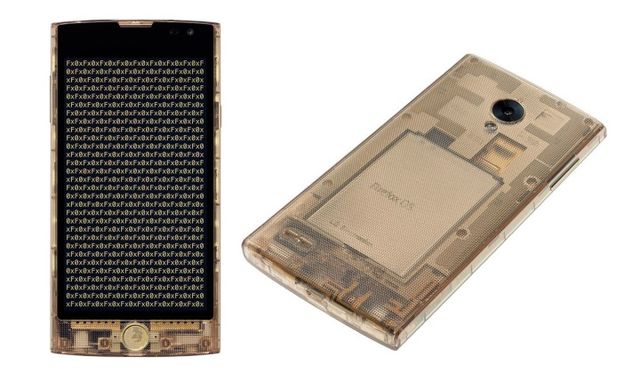
In my opinion, the secret of success is the official support for multiple operating systems out of the box. This will become additional insurance for the user, he will be sure that in any case he will not be left empty-handed. For example, buying the same MacBook, I clearly understood that even if MacOS did not suit me with something, I could always install Windows on it and use it like a regular laptop. Otherwise, I would hardly buy the device on a completely new OS for myself, in which there are no many programs familiar to me, the risk is too great that I will not be able to fully work on it.
I can say the same about smartphones on Windows. It would be interesting for me to try the top ten, but given that the previous versions of the OS were less convenient for me than the usual one Android, I will not risk my money. But having the opportunity, if something happens, quickly, simply and completely officially turn it into a smartphone on 'clean' Android, I would take a chance. In the end, I have no complaints about the hardware of Lumia smartphones.
Alas, for most developers, this is too difficult and expensive. And Microsoft, which does not have any financial problems, will not do it just out of principle. And to what extent Google will decide to support its direct competitor by sharing its proprietary services is also a big question. Especially if you consider that even for devices with GPE versions, changing the firmware to 'clean' Android and back is not as easy as we would like.
Instead of an afterword
Perhaps one day the OS and the hardware of the smartphone will no longer be perceived as an indivisible whole. Moreover, there are already projects of smartphones with support for several operating systems, even if they are primarily of interest to 'geeks'. But for this it is not enough to release 'alternative' versions of smartphones on completely unpopular operating systems or try to convince users that the phone can completely replace a laptop. If we are trying to artificially divide the device into hardware and software, then we need to give the user the freedom to combine one with the other, and not put a spoke in his wheels. And make sure that both hardware and software are really interesting in and of themselves. It sounds like a utopia, but who knows …

